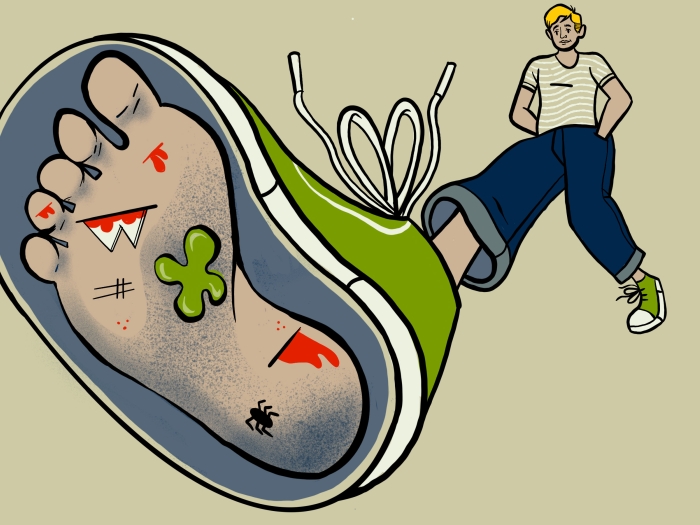Roy handles communications for several departments across Michigan Medicine, including Kellogg Eye Center, nephrology, Survival Flight/emergency medicine, diabetes/endocrinology, allergy/dermatology, and women’s and children’s. She was previously a journalist and a state government staffer in Rhode Island and Michigan. Contact: [email protected]; Twitter: @Tessa_Roy


Health Lab
A new initiative is aiming to raise awareness and improve accessibility to HPV testing. Diane Harper, M.D., M.P.H. M.S., discusses it and the importance of screening for HPV.

Health Lab
Researchers at the University of Michigan are finding that many patients may be encountering significant barriers to cancer care, even from their first phone call to a clinic.

Health Lab
A program at Michigan Medicine gives dermatology residents a chance to work internationally.

News Release
University of Michigan Health experts to discuss medications such as Wegovy, Ozempic, Zepbound and more

Health Lab
A national study from Michigan Medicine shows that the use of these weight loss drugs is increasing rapidly in adolescents and young adults 12-25 years, especially females.

Health Lab
Building a comprehensive human kidney cell and tissue catalog could help develop more treatments for kidney disease.

Health Lab
Researchers have used advanced computer algorithms to uncover distinct molecular subgroups of kidney diseases, independent of clinical classifications. These findings have significant implications for personalized treatment approaches.

Health Lab
The FDA approved the use of a therapeutic device invented and developed at the University of Michigan for use in children with acute kidney injury and sepsis or a septic condition requiring continuous kidney replacement therapy.

News Release
Shahzad I. Mian, M.D., has been appointed chair of the Department of Ophthalmology and Visual Sciences and the F. Bruce Fralick Professor of Ophthalmology in the Medical School and the Director of the W.K. Kellogg Eye Center

Health Lab
Tik Tok trend of going barefoot in public is a bad idea according to podiatrists

Health Lab
Some oropharynx cancer patients may qualify for less radiation treatments, according to a new study from experts at the University of Michigan Health Rogel Cancer Center.

Health Lab
Experts at Rogel Cancer Center develop and study the impact of a new drug for salivary gland cancers

Health Lab
Prostate cancer is highly treatable and over 98% of men survive 10 years if the cancer is diagnosed and treated early.

Health Lab
Experts observed in a new study that injection of the most popular type of dermal filler, cross-linked hyaluronic acid, into photoaged skin could reverse the dermal changes associated with photoaging.

Health Lab
Research from Michigan Medicine experts is shedding light and potentially expanding options for patients living with an aggressive childhood cancer.